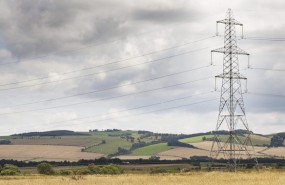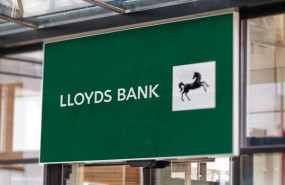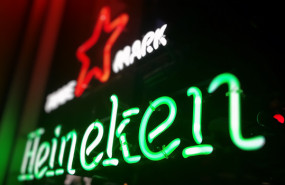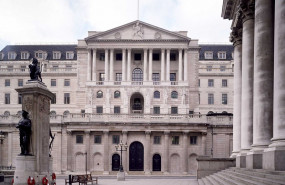Press Round-Up Short (Premium)

Friday newspaper round-up: UBS Credit Suisse, Master Lock, Southern Water, NHS, Man City
The Swiss investment bank UBS is reportedly preparing to cut more than half the 45,000 staff it inherited from the takeover of stricken rival Credit Suisse, in a move that is expected to begin as early as next month. Insiders have indicated that between 30,000 and 35,000 staff are likely to leave the combined organisation this year in three rounds of cuts beginning in July, according to Bloomberg News. - Guardian.

Thursday newspaper round-up: Brexit, UK water companies, National Grid
Brexit has not contributed to labour market shortages in the UK, according to Andrew Bailey, the Bank of England governor. Speaking at a panel with other major central bankers, Bailey said the UK’s inflationary problem was partly the result of workers choosing to leave the workforce after the pandemic and not returning. He said the bulk of this labour market shrinkage was caused by factors outside the UK’s exit from the European Union, which put a stop to the free movement of labour from the 27-country bloc.

Wednesday newspaper round-up: BT Group, Water bills, CAB Payments
The telecoms regulator has issued a warning to the chief executive of BT over his comments that the group’s Openreach network expansion would “end in tears” for rivals and has opened an investigation into its performance. Ofcom said Philip Jansen’s comments were of “significant concern” and that it “would be extremely concerned to see similar comments in future and will be keeping this under close review”. - The Times.

Tuesday newspaper round-up: Mortgage rates, KPMG, tax fines, Ocado
The average price of two- and five-year fixed-rate mortgages in the UK has hit its highest level for seven months, putting further pressure on borrowers who are reaching the end of their deals. Data from the financial information firm Moneyfacts showed the cost of a two-year deal for homeowners rising to 6. 23% on Monday, up from 6. 19% at the end of last week and its highest since last November. Meanwhile, the average cost of a five-year deal rose to 5. 86%, from 5.

JPMorgan downgrades Lloyds to ‘underweight’
JPMorgan Cazenove downgraded its stance on Lloyds on Monday as it took a look at UK banks.

Monday newspaper round-up: Car insurance, Vodafone/Three, Braemar
Governments must raise taxes or cut public spending after central banks kept interest rates too low for too long in the face of higher inflation, according to the Bank of International Settlements. Closing the gap between government income and expenditure would “calm inflation”, according to the annual report from the Basel-based organisation, which advises 63 central banks covering 95% of global economic output. – Guardian.

Sunday newspaper round-up: Government debt, High-inflation trap, Car insurance
The cost of servicing the government's debt mountain will surpass £500bn over the next five years, due to high inflation and steep interest rates. Interest rate payments on that debt will rise to their highest level as a proportion of economic output since the late 1940s. This year alone, the interest rate bill for an individual household was already £4,000. That has also led to concerns that public spending, including for education and health services, will need to be squeezed in order to balance the books.

Friday newspaper round-up: Rail strikes, homeowners, Activision/Microsoft
A fresh round of rail strikes is expected to disrupt national networks during July, after the RMT union announced that 20,000 workers would stage three days of stoppages. The move dashes any hopes of an imminent resolution to a bitter labour dispute that has caused frequent disruption to rail lines across the country throughout 2023. – Guardian.

Thursday newspaper round-up: Milk prices, mortgages, Amazon
The UK’s largest dairy cooperative has said there could be further increases in the price of milk and other dairy products if the government does not urgently tackle labour shortages in farming. The lack of workers is fuelling food price inflation, Arla said, warning that without action this could also lead to a crisis in milk production. – Guardian.

Wednesday newspaper round-up: Minimum wage, Rolls-Royce, CBI, Debenhams
Some of the UK’s best known retailers including WH Smith, Marks & Spencer, Argos and LloydsPharmacy are at the head of a list of more than 200 companies collectively fined £7m for failing to pay the legal minimum wage. The businesses were also forced to pay out £4. 9m to about 63,000 workers left out of pocket after violations of the rules were uncovered by inspectors at HMRC, varying from breaches related to asking workers to pay for aspects of their uniform to paying the incorrect apprenticeship rate.

Tuesday newspaper round-up: UK economy, Odey, John Lewis
More than half a trillion pounds’ worth of underinvestment by government and business over recent decades has left Britain’s economy trapped in a growth “doom loop”, according to a thinktank. Sounding the alarm as the economy struggles to gain momentum, the Institute for Public Policy Research said the UK risked falling further behind comparable wealthy nations without a sharp turnaround in approach. – Guardian.

Monday newspaper round-up: B&Q, Airbus, Intel
EU exports of electric cars to the UK worth €30bn a year will be put at risk unless the Brexit trade deal is tweaked, representatives of the sector in Brussels have said. Three of the world’s biggest car manufacturers have already called on the British government to open talks over new rules that will see 10% tariffs put on exports to the EU, if 45% of an electric vehicle by value does not originate in the EU or the UK. – Guardian.

Sunday newspaper round-up: Drinkflation, Bank of England, BT Group
Brewers have cut the levels of alcohol in many beers and lagers, saving millions of pounds in tax in the process. But they haven't cut prices for consumers. Food giants and grocers have done the same through stealthy reductions in package sizes and portions. Critics however hold that so-called drinkflation is the more insidious of the two, as bottle and cans stay the same size and hold the same amount of liquid. In the case of Foster's, which is sold by Heineken in the UK, alcohol by volume has been reduced from 4.

Friday newspaper round-up: Energy bills, mortgage costs, WE Soda
MPs have urged the government to set out its plans to protect households from high energy bills this winter as they said about 1. 7 million people, including some of the most vulnerable groups, had been left waiting too long to receive previous support. The public accounts committee (PAC) said that although schemes were introduced quickly, the government “did not have the bandwidth” to make sure help reached all groups in a timely fashion. – Guardian.

Thursday newspaper round-up: Women bosses, Swedish inflation, Odey
UK businesses have improved female representation on their boards, research shows, but two-fifths of FTSE 100 firms still do not have a woman in one of their top four executive roles. The proportion of women on the boards of the 585 FTSE all-share listed companies has risen over the past year from 36% to 40%, according to the analysis of Companies House data. – Guardian.

Wednesday newspaper round-up: Amazon, EY, Entain, smart meters
Amazon has been accused of being “no friend of the small business” after a report discovered evidence that the online marketplace has ramped up fees and advertising costs for sellers. It found that between 2017 and 2022 Amazon had tripled the amount it earned from fees for independent sellers in Europe, including for listings, deliveries and digital support. That growth far outstripped the rise in sales, which doubled over the same period. – Guardian.

Tuesday newspaper round-up: UK exports, Microsoft/Activision, UBS
Britain has endured the worst exports record of any member of the G7 besides Japan over the last decade, according to a new analysis that will raise pressure on the government to reconsider its post-Brexit trade deal with the EU. As most of the world’s other major seven economies have rebounded from the pandemic, export growth has remained sluggish in the UK at a time when businesses trading with the EU faced extra red tape and costs as a result of the country leaving the bloc.

Monday newspaper round-up: UK growth, Waitrose, HMRC, Crispin Odey
Britain will be left with deep scars from the pandemic despite narrowly escaping a second recession within three years and growing signs of an economic pick up, according to new forecasts. A new report by the accountancy firm KPMG has found that the economy has enjoyed a better start to the year than it had thought, and is now expected to grow by 0. 3% this year, compared with its previous prediction of an uplift of just 0. 1%. – Guardian.

Sunday newspaper round-up: Bank of England, Sturgeon, Melrose
Experts believe that the Bank of England will have to jack up its base rate from 4. 5% at present to 5. 5% by the end of 2023 in order to tame stubbornly high inflation. It was that prospect that had already resulted in lenders and building societies to raise the cost of fixed-rate mortgages or to pull deals altogether, as HSBC did during the preceding week. Higher rates also have implications for the cost of servicing the country's debts, in turn eliminating the Chancellor's already limited headroom to push through tax cuts before the elections.

Friday newspaper round-up: HSBC, Tesco, windfall tax
HSBC has temporarily withdrawn mortgage deals for new borrowers due to a surge in demand ahead of expected rate rises. The bank said on Thursday it would remove all its “new business” residential and buy-to-let products, with deals becoming available again on Monday. – Guardian.